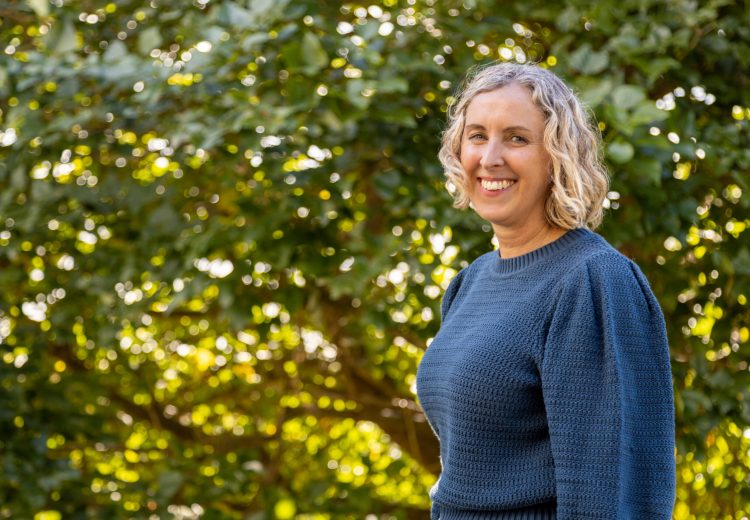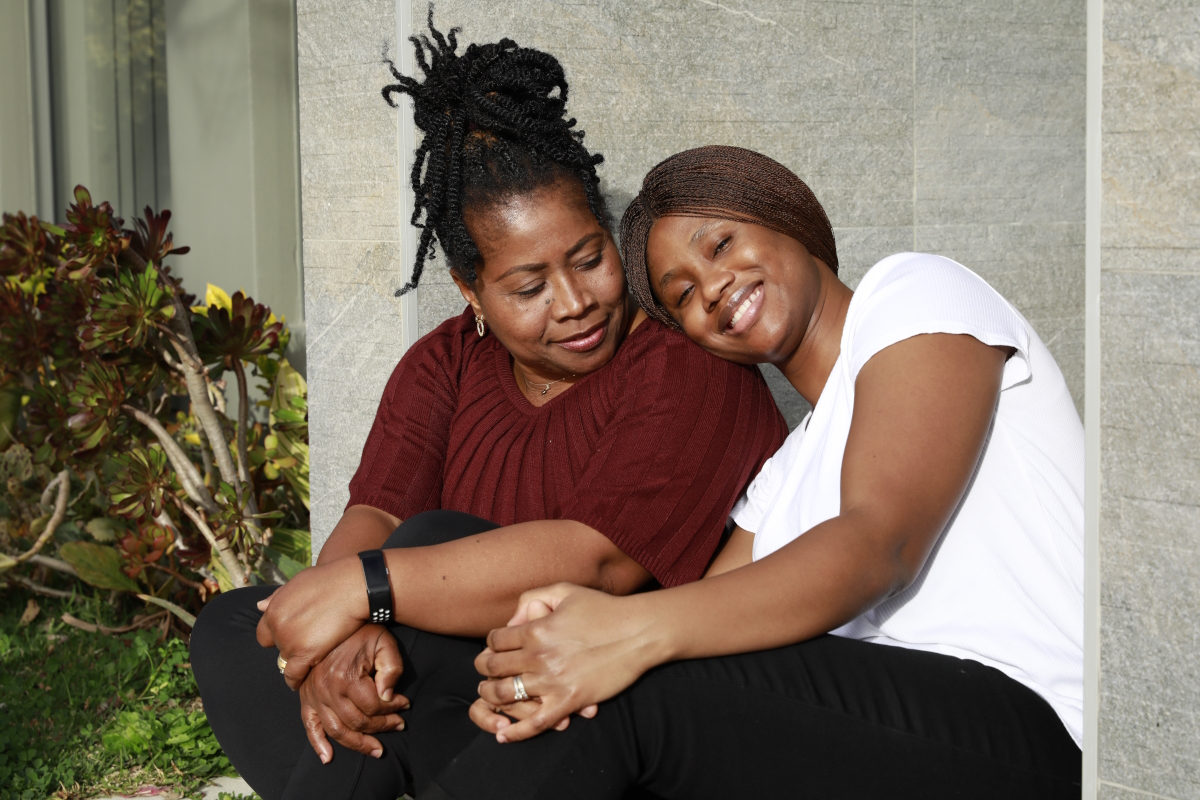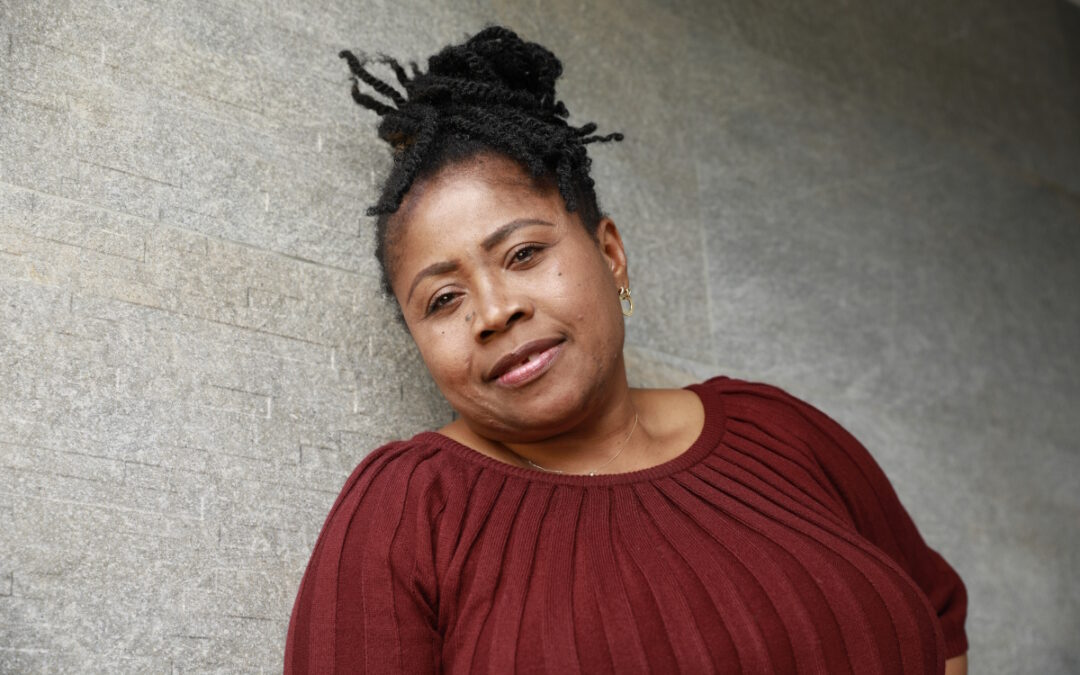There’s a moment from her daughter’s birth in Sierra Leone that still plays over and over in Catherine Conteh’s mind, 30 years later.
She had been in labour for four days straight. Catherine was writhing with untreated pain and crying out to God. The doctors said that due to complications with her labour, she needed a Caesarean section surgery – one that 18-year-old Catherine and her husband, Augustine, couldn’t afford. Without payment upfront, she could not have the surgery – or pain relief.
Decades later, she remembers the thought that ran on a loop amid the pain and fear.
“I will lose my life. If nothing happens, I will lose my life. That kept on playing right in my heart, in my mind.”
Catherine and Augustine had been so excited to have their first baby, despite their tight finances and the tumultuous state of Sierra Leone, then in the middle of a civil war. Her birth was supposed to signify the start of something new and hopeful. But as the hours and days passed, the gravity of Catherine’s situation set in. The baby they’d longed for likely wouldn’t survive – and neither would she.
“Within those four days, my excitement about having my baby, meeting my baby, was fading away slowly, slowly. What my whole being was focusing on was the pain. When is this pain going to stop?”
By day four, Catherine felt all the strength fading from her body. From a crack in the hospital curtain, she saw a body, covered head to toe, being wheeled out on a stretcher. She wondered, “Am I going to be the next person?”
Catherine drifted to sleep. When she woke up, it was to the sight of a foreigner by her bedside, stroking her hair, asking her name.
“I was given a second chance,” explains Catherine.
The visitor was Aly Hall, a nurse from Auckland. She was volunteering on board the first Mercy Ship, the Anastasis, then docked in Sierra Leone’s capital of Freetown. Aly and a few other Mercy Ships volunteers were on a tour of the maternity ward in the local hospital when Aly heard Catherine’s agonised cries coming from down the hallway. Aly immediately felt drawn to do something, anything, to help this stranger.

Aly photographed at home in New Zealand now.
“With Catherine being in labour for four days, the nurse told me that she would die, and the baby would die. It was communicated in a very matter-of-fact way, which shocked me – that this was going to be the outcome without any intervention. I’d never encountered anything like that,” shared Aly. “It was upsetting to think that 100 dollars or so could save the life of her and her baby. That’s all it would take. I didn’t know what to do, so I thought, I’ll pray for this woman and hand it over to God.”
As Aly’s prayer ended, Mercy Ships anaesthetist Dr Keith Thomson, came into the room. Upon hearing Catherine’s story, he offered to pay for the surgery in full.
“There are millions of people in Africa who need help, one way or other,” reflected Dr Thomson about what prompted him to pay for a stranger’s care. “But sometimes I find you get the sort of feeling that says, ‘Help that one.’ Someone else will help that one, that one, that one, and that one. But you help that one.”
The next thing Catherine remembers is a hospital nurse telling her, “Look, these strangers who came in are going to pay for your Cesarean section. So, we’re just waiting for the doctor to come in, and then we can start the process.”
Miraculously, both Catherine and her daughter, Regina, were safe and healthy after the operation. Recovering in the hospital ward, the new mother experienced the moment she’d feared would never happen – holding her precious baby girl in her arms.
“It was quite a happy moment for me because I was really looking forward to seeing my own baby, you know? And my husband was just over the moon.”

Catherine and her daughter Regina now live in Perth.
Aly and another Mercy Ships volunteer, Gina Willig, visited Catherine often in the days that followed, bringing medicine and prayers. Quickly, the strangers became like sisters.
“I call [Aly] sister and she calls me sister,” laughed Catherine, “because it takes a pure heart and someone with pure love, meeting someone and instantly loving them unconditionally, you know?”
Eventually, Catherine recovered and went home to start a new chapter of life with her family. Aly returned home to New Zealand. Years passed. The communication with Dr Thomson remained strong over the years, and he even helped Catherine’s family receive asylum in Australia in the wake of growing conflict in Sierra Leone.
Once there, Catherine decided to enter the medical field and become a nurse, just like Aly. Her daughter, Regina – named after the American volunteer nurse, Gina – grew up to follow the same path. And in a beautiful full circle moment, at the age of 18 Regina returned to the country where she was born to volunteer as a nurse on board a Mercy Ship.
One day, Catherine got an unexpected call from Dr Thomson. He had found Aly’s contact information on Facebook and asked Catherine if she’d like to reconnect.
Catherine didn’t hesitate – and before long, she was holding her phone, greeted by a familiar voice from long ago on the other end.
This time, there was no language barrier to prevent the women from speaking freely.
“Hearing her voice again, after almost three decades, was a bit emotional for me. My hope for me and Aly is to physically see ourselves and give ourselves that sisterly hug. And get to praise God together, you know?”
When she looks back on that decades-ago day, Catherine believes it all comes down to the grace of God, and the simple choice to take time to care.
“I’ve learned, from that one kind choice to help a stranger… out of that decision, a whole family is saved. A whole family experienced success. A whole family experienced what they never imagined. And because [Dr Thomson] said yes, to the Lord, by paying that £70, he saved my life. He saved my daughter’s life. And from there, I grew up to be a young lady who believed in doing what is right,” shared Catherine as she reflected on the years that have passed. “That’s what made me who I am today. I learnt that from him. Help where you can help, because you never know how that little, kind gesture you’re doing will fold out to be.”
It was Aly’s simple, spontaneous act of caring and kindness that saved not just one life, but two – and changed the trajectory of a family’s future for good. Decades later, the ripple effects of that moment continue to play out in Catherine’s life and beyond.
There are thousands of stories like Catherine’s and Mercy Ships sees many on board our hospital ships. But thanks to volunteers, and partners around the world, more and more of these stories end with a happy and renewed beginning.

Recent Comments